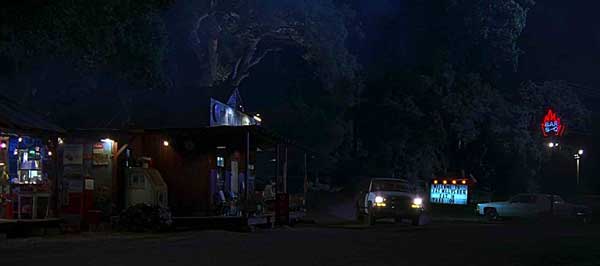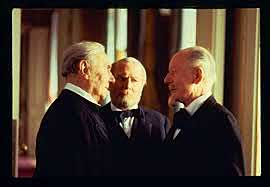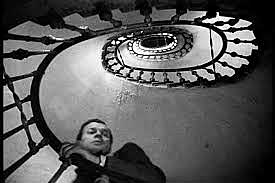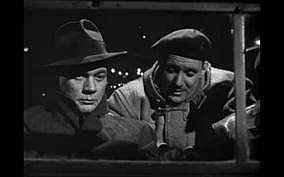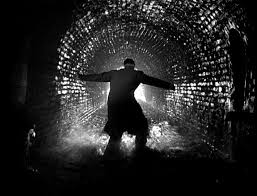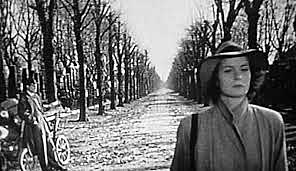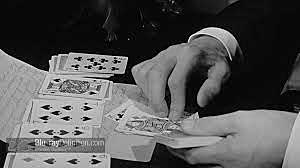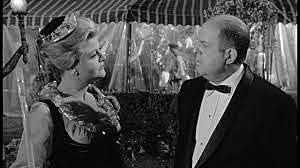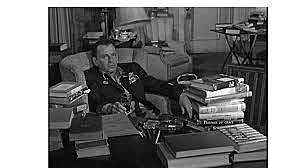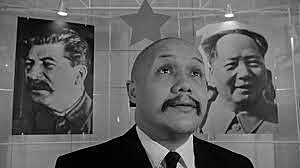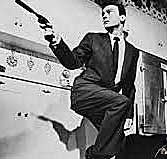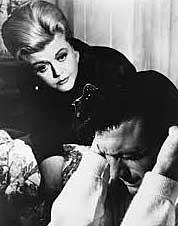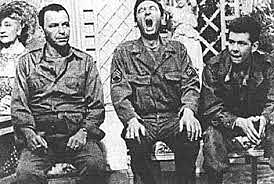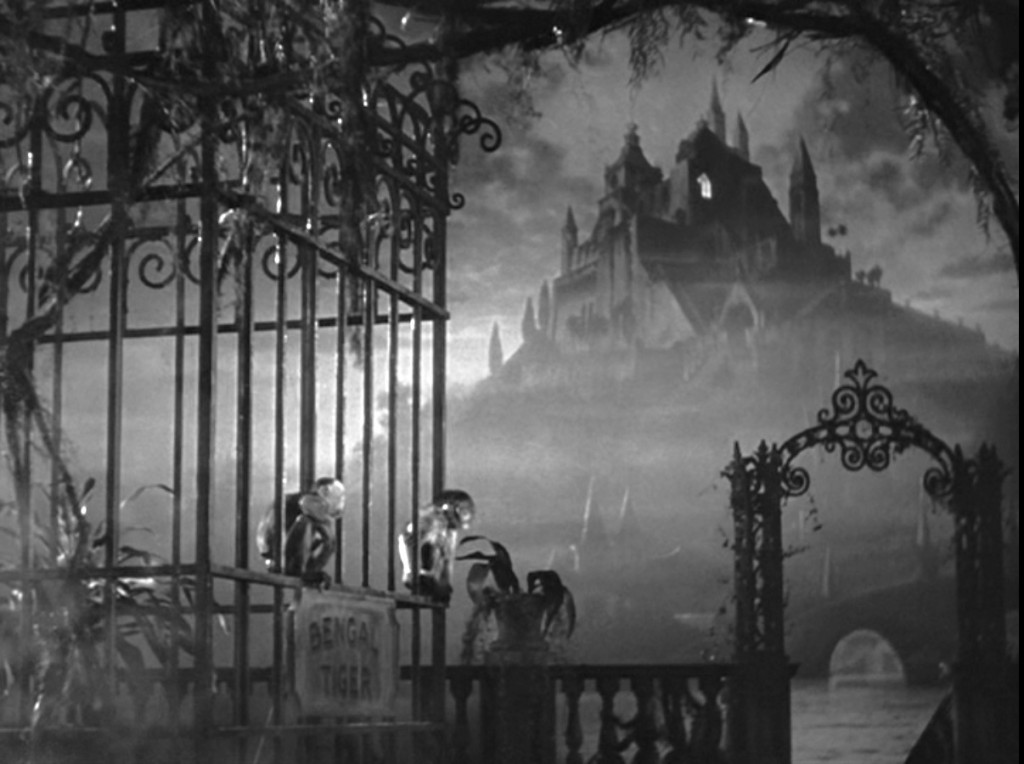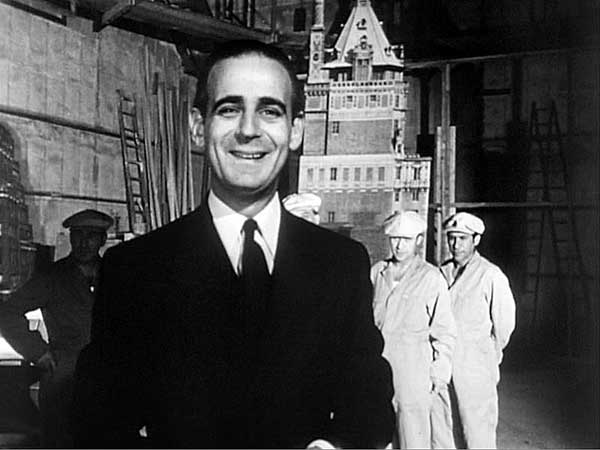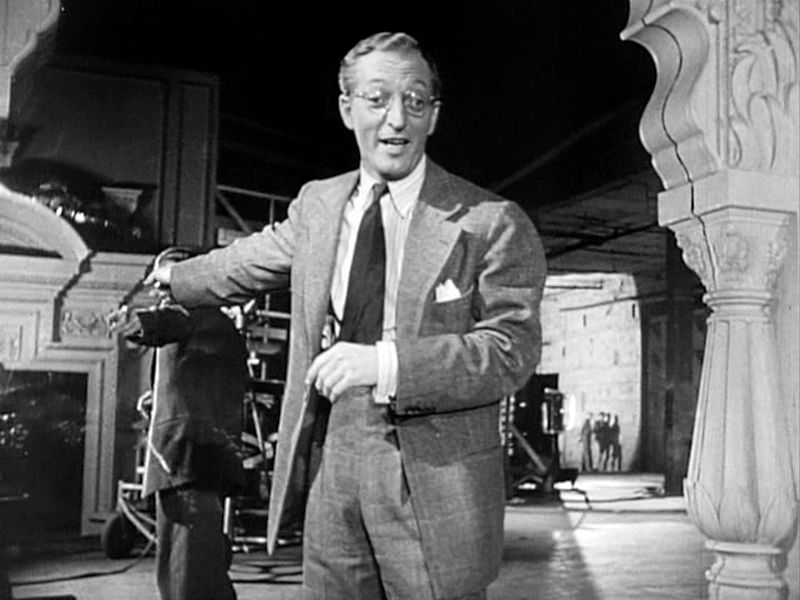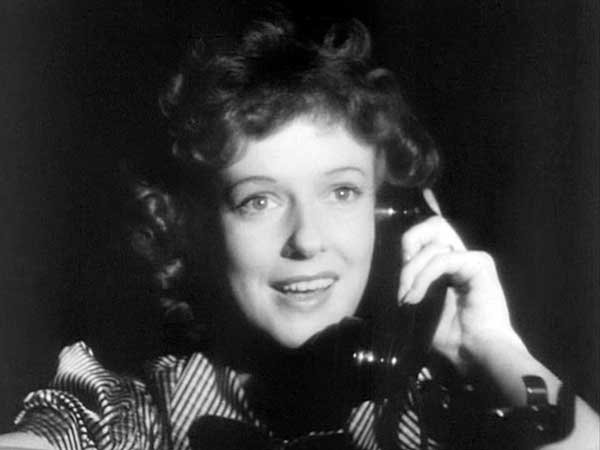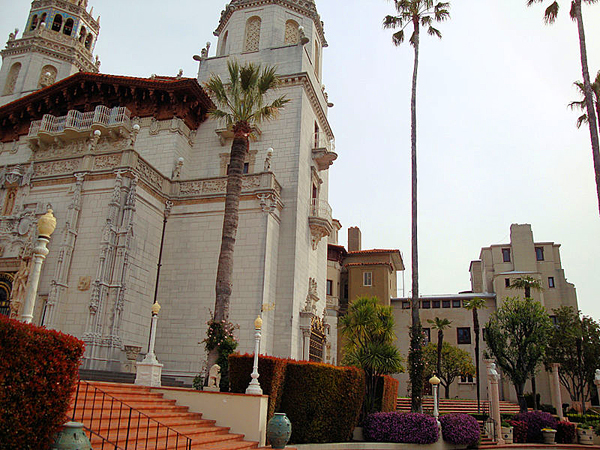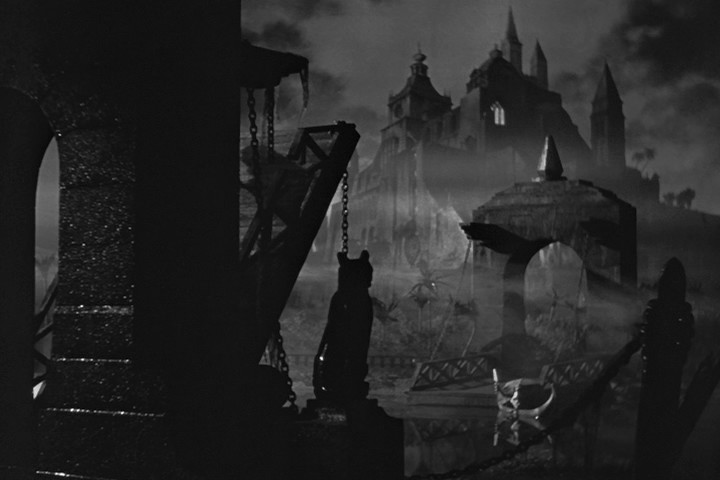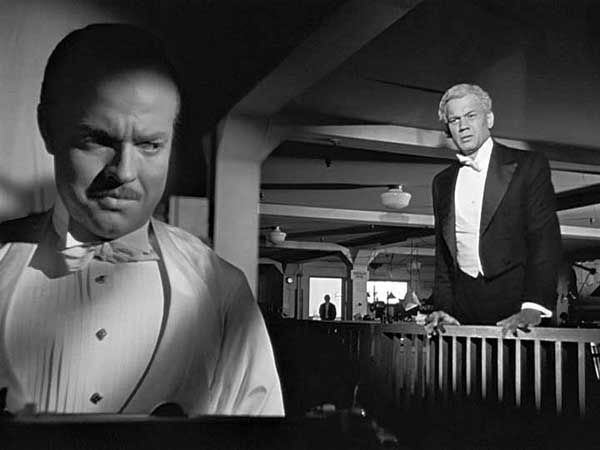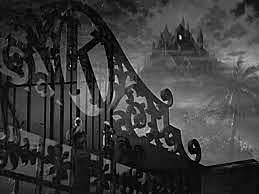The Varnished Culture's Thumbnail Reviews
Regularly added bite-sized reviews about Literature, Art, Music & Film.
Voltaire said the secret of being boring is to say everything.
We do not wish to say everything or see everything; life, though long is too short for that.
We hope you take these little syntheses in the spirit of shared enthusiasm.
Primary Colors
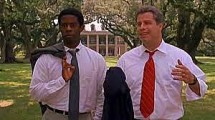
(Dir. Mike Nichols) (1998)
Probably the best political road movie, almost a primer of American Democratic Presidential politics. Great direction by Mike Nichols, solid performances and a sensational script (by Elaine May).
The book published by Anonymous (Joe Klein) is a roman à clef about the Bill Clinton comeback campaign of 1992. Profane, salty, clever, hilarious and sad, it is a fascinating story of the politician’s challenge to be all things to all, a marathon, run as a sprint.
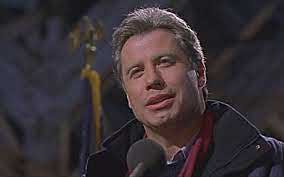
“I don’t think I’d ever heard…a speaker who measured his audience so well and connected so precisely.”
John Travolta is uncanny as Governor* Jack Stanton. In P’s favourite scene, where Stanton addresses a union crowd in a cold, closed-down factory, he seems to be Bill Clinton, and even more chilling, his blather actually moves you. Emma Thompson was never better as the long-suffering Hilary knock-off, and you gain insight from the two leads’ preformance into the power of a driven couple with complementary skills.
Adrian Lester, as Henry Burton, a notional Nick Carraway, plunges in to the vortex of the Stanton campaign, romancing political aide Daisy (Maura Tierney), learning from adoptive mother and political dust-buster Libby (Kathy Bates), teaming up with Stanton’s James Carville-style strategist Richard Jemmons (Billy Bob Thornton) and investigating the sordid past of rival Governor, Fred Picker (Larry Hagman, in a star turn).
Great scenes abound: The Factory Speech; Jack Stanton has yet another apple fritter at Krispy Kreme; He uplifts illiterates at an adult literacy meeting with fake stories about his Uncle Charlie; He then talks Henry Burton into cutting class tomorrow (“I’m sure the kids won’t mind”); Susan tells Henry that the best people never learn to avoid getting burned; His girlfriend doubts his sincerity; The team has to take up with Mrs Stanton the delicate matter of her husband’s peccadillos; At a thanksgiving party, Stanton boogies (badly) on the dance floor (it takes a great dancer such as Travolta to make such a realistic hash of it); Libby tells Henry what a privileged life he’s led; and then there are the meetings, at Willy’s BBQ place (P must one day go there), interminable hotels, the Governor’s mansion, Neo-Bwana Land…all round, a thick tasty slice of modern American life.
[*In America, any officeholder seems to retain the status long after leaving office.] [** During the ‘policy discussion’ at the BBQ place (the BBQ opportunities offer, for P, the best reason to visit Arkansas), Richard starts crying during a Southern Mommathon, and Jack and Co. soothe him by singing the most damn American song ever – ‘and a Southern Governor wrote it’. That song is You Are my Sunshine, co-written by Louisiana Governor Jimmie H Davis, neatly described in An American Melodrama thus: “It seems odd that such a sunny fellow is also a relentless segregationist and was the author of the heartless legislation that took Negro women with illegitimate children off the relief rolls and left them to hustle or starve.”] Continue Reading →Dante and His World

(By Thomas Caldecot Chubb)
You might call this an inspired remaking of Dante’s life and thought through his art, with the eye of a poet and scholar, on intimate terms with Aretino, Boccaccio, Dante. Speculation, necessarily, as much as history but highly informed. We love the cover that tells us not only is Mr Chubb a graduate of Yale, but he “commutes between his home in Greenwich, Connecticut, and his plantation in southern Georgia.”
Continue Reading →Wagner on TV
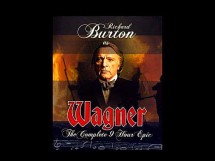
(Dir. Tony Palmer) (1983)
4 DVDs, 10 episodes, 9 hours – what else from a Wagner bio? A sprawling, at times maddeningly repetitive and almost redundant film (originally foisted on the world as a one-off cinema release!) is none the less painstaking, illuminating, and beautiful, as good as you could expect in fact.
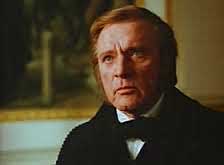
Burton “giving his usual impersonation of a Welsh rugby forward who has just been told that he has been dropped from the team.”*
Richard Burton gives a great rendition of that other talented belligerent named Richard, suggesting the inner arrogance, drive and sacrificial impulse of the master composer.
The episodes are linear, essentially, with flashes forward, backward and sideways. One for those who know and care about Wagner and his legacy.
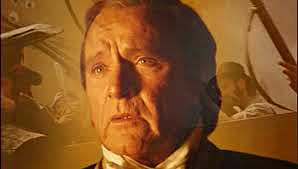 [*Clive James]
Continue Reading →
[*Clive James]
Continue Reading →
The Third Man

(Dir. Carol Reed) (1949)
Graham Greene once wrote on the back of an envelope;
“I had paid my last farewell to Harry a week ago, when his coffin was lowered into the frozen February ground, so that it was with incredulity that I saw him pass by, without a sign of recognition, among the host of strangers in the Strand.”
Thus the idea of a story was born and, although substantially re-jigged later, Greene had the outline and as he claims, “it is almost impossible to write a film play without first writing a story. Even a film depends on more than plot, on a certain measure of characterisation, on mood and atmosphere; and these seem to me almost impossible to capture for the first time in the dull shorthand of a script.” This seems to us inherently wise but alas, these days, honoured in the breach.
From this promising beginning, and even more fortunately, Alexander Korda wanted to do something based in post-war Vienna, with Carol Reed (Odd Man Out) to direct. The result was a classic: a hard-bitten, funny and suave account of a hack writer who thinks his old pal Harry Lime is dead and not a monster.
Joseph Cotton has the main role as Holly Martins, author of such masterpieces as The Lone Rider of Santa Fe, Oklahoma Kid and Death at Double XX Ranch but there are several vital roles. Trevor Howard as Calloway (not Callaghan), hot on Harry’s trail, was never better. Ernst Deutsch (Baron Kurtz) Siegfried Breuer (Mr Popescu) and Erich Ponto (Dr Winkel) are vivid as members of the Penicillin Gang.
Alida Valli stubbornly cleaves to Harry’s memory – she is unsurpassed at portraying stubborn doomed devotion and spends a great deal of time ignoring (magnificently) Holly’s attentions.
And of course, the Third Man. Orson Welles only has a short amount of screen time but he is central as Lime, his first appearance (an hour into the film) momentous, a huge and knowing performance, that features the weighty line (which he wrote into the script): “In Italy for thirty years under the Borgias they had warfare, terror, murder and bloodshed but they produced Michelangelo, Leonardo da Vinci and the Renaissance. In Switzerland they had brotherly love, 500 years of democracy and peace, and what did that produce? The cuckoo clock. So long Holly. “*
[*Although as Lowe in the Spectator points out, they did invent Toblerone.]The direction, settings about the grand and war-ruined Vienna (streets, sewers, the Wiener Riesenrad, the Casanova Club), and cinematography are superb. And dig that zither!
Continue Reading →Odd Man Out

(Dir. Carol Reed) (1947)
A classic, sad and dreamlike treatment of a gang of IRA thugs and their leader, wounded and on the run after a mill robbery. Only, the leader is post-war dreamboat James Mason, and we are forced to be sympathetic by virtue of his great, Christ-like playing and the pathos-drenched script and direction.

A powerful example of the potency of superior film technique, enlivened by some grand Irish-potato character roles, a very stern and noble Denis O’Dea as the Police Inspector, the impressively louche, kind and desolate Tober (Elwyn Brook-Jones), plus an eye-rolling, lip-smacking, face-twitching, whirling dervish cabaret turn by Robert Newton as a tortured painter. Irresistible!

The Manchurian Candidate
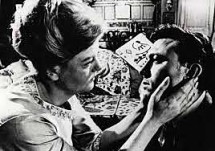
(Dir. John Frankenheimer) (1962)
This is a nifty thriller, based on the intriguing brain-washing novel of 1959 by Richard Condon. While not entirely satisfactory, it features a wild, paranoid but plausible plot, great narrative drive and top drawer performances.
Sergeant Raymond Shaw (Laurence Harvey) is given a Congressional Medal of Honour and general acclaim after his return from the Korean War, which is passing strange, since his entire unit hates him and there are several gaps in the story. Meanwhile, his vicious Mum and his churl of a stepfather, Senator John Iselin, a Joe McCarthy facsimile, have designs on the Presidency.
Shaw’s ‘pal’ and superior, Captain Marco (Frank Sinatra) keeps saying how great Raymond is, yet wonders why he does this, given that “It’s not as though Raymond is hard to like….he’s impossible to like!”
So the search to solve the mystery of Raymond’s popularity is on and the plot thickens, is reduced (or “reduced down” as morons on cooking shows have it), and goes from dark to darker.
As you begin to look past Shaw’s loathsome personality, you realise how hideously trapped and manipulated he is, and how sad his fate.
Sinatra uncorks his latter day hard-bitten persona as Captain Marco, in a vibrant and compelling performance. Harvey, a most perplexing actor, is spookily perfect for a spooky role. There are good turns by John McGiver, James Gregory, Janet Leigh, Henry Silva and Khigh Dhiegh in key supporting roles. But a giant shadow over the film is cast by Angela Lansbury, in a startling performance as a modern Medea, a forceful, lethal and consumed dominatrix.
All in all, well worth a look. Avoid the pallid 2004 ‘remake’.
Continue Reading →Don Giovanni

(State Opera SA, 30 May 2015)
TVC had only seen the disastrous ENO production but not this version which originally featured Teddy Tahu Rhodes as the Don. What a relief to find staging and performances generally faithful to the 1787 work; in fact, superb staging, a simple hall, doubling as a courtyard, bounded by masonry with balconies (which, unfortunately, wobbled a little) but the simplicity of this setting, varied by good use of lighting, emphasized the pyrotechnics of the finale when the far wall collapsed to admit the Commendatore’s statue and a team of demons ferry the Don to the infernal regions (or perhaps only Toledo).
The Adelaide Symphony Orchestra conducted by Graham Abbott was spot on, not draining the music from the notes. Mozart gives substantial space and musical character to numerous roles, and this night, everyone was fine. As Don Giovanni, Grant Doyle was terrific (Nicholas Braithwaite had told the Richard Wagner Society a few days ago that he was wonderful in the role); Douglas McNicol broad and amusing as Leporello; Teresa La Rocca appropriately miffed and wistful as Donna Elvira; Gisele Blanchard sweet as Zerlina; Jeremy Tatchell stout as Masetto; Steven Gallop impressive as the Man of Marble, and a standout as the bereft couple were Sharon Prero as Donna Anna and Virgilio Marino as the unrequited Don Ottavio.
Continue Reading →The Geography of Bliss

(Eric Weiner)
This is another of those sorts of books which are labelled “holiday” or “beach” reads but for once, it really might be worthwhile to read at 30,000 feet while jetting in to meet some joyful Icelanders (by far the best chapter in the book) or away from the moaning Moldovans (who, TVC is surprised to note, don’t even seem to be cheered by their relative success at Eurovision). Is Bhutan really the happiest country in the world? Despite its telegenic crinkle-faced monks, its measure of Gross National Happiness and its being the site of Shangri-La (which was, interestingly enough, the former name of Camp David), I doubt it. Now that almost every Bhutanese has a mobile phone, 4G, is addicted to Facebook and communicates by Twitter, it will not be long before Moldovan misery descends upon them all.
Continue Reading →The Waiting Years

(Fumiko Enchi)
Although the story commences in the household of Kin and her crippled daughter Toshi, it quickly turns to the bifurcated life of Tomo, the middle-aged wife of an older, important bureaucrat. Tomo, despite her “unbending quality” and “undeniable air of distinction” lives an agony of repressed jealousy and humiliation. Although she can barely read and is a voteless subject in her samurai husband’s kingdom, Tomo manages the family’s extensive finances and murderously complex emotional structures with dedication and skill. Her husband, Yukitomo, is a suave and easy seducer of the disenfranchised women about him who have nowhere else to go. The final scenes, Tomo’s walk home in the dusk and Yukitomo’s revelation (reminiscent of the rending final pages of Sigrid Undset’s “Master of Hestviken”) are affecting and masterly.
Continue Reading →Citizen Kane

The Most Famous Best Film in the World. Stunningly modern, stunningly Big, even today: when the RKO Radio signal and production credit fades, there it is in silently screaming faux neon: CITIZEN KANE. No film has ever made good on such immense ambition, no film has ever been so radically fresh in structure, tone, staging. It may take another art form to produce something as pure in its radical and daring arrogance.
The opening is a morbid montage right out of S.T.Coleridge & Hammer Horror films – a “No Trespassing” sign, unofficial thematic emblem; an ascending cyclone fence, some iron tracery and a gothic pile in the old despotic style, fit for Tamerlane. An air of desolation and decay (including an abandoned golf course and zoo), redolent of Ozymandias. Fog. Through the fog, sounds the grim Taxi Driver style horns of Bernard Herrmann, homage to Wagner’s Götterdämmerung. Looking up at a high leadlight window, we see the lights go out – from the inside, we see the ambient external light of night dimly alight on an aged bedridden figure of a man.
A snowdrift in a glass, a dying declaration (“Rosebud” – the MacGuffin) and as the snow-globe falls from a dying hand and breaks, a mock newsreel tells us of the key events in the life of Charles Foster Kane, a newspaper mogul with a passing resemblance to William Randolph Hearst.
The film thus gives away its ending in the initial minutes but Welles is able to give context and depth to the rest of his story, including establishment of the back story, whilst retaining a sense of suspense via his MacGuffin.
The various scenes in which the reporter, Thompson (William Allard) engages with people from Kane’s past – his school friend and drama critic Jed Leland (Joseph Cotton), his business manager Bernstein (Everett Sloane), his second wife (Dorothy Comingore) and through them, past people, such as his mother (Agnes Moorhead), his guardian Mr Thatcher (George Coulouris) and his first wife (Ruth Warrick) – are potently done, brilliantly scripted and shot (by Gregg Toland) and superbly, dynamically edited (by Robert Wise). RKO production values were then as good as any and helped create a sense of enormity central to the film.
Orson Welles (b. 6 May 1915) made Citizen Kane (his first film) like the early Kane ran “The Enquirer” – he didn’t know how to do it so he tried everything he knew. There are theatrical touches that had never been translated to film because of various advantages or disadvantages of that medium. Welles tried them out. As a result, despite several accidents on set and interference from RKO’s front office, there is a great freshness yet maturity about the production. And although Kane is a monster, of course, he somehow, with his faults all on his sleeve and his acknowledged sense of failure and loss, manages to retain our respectful sympathy.
There has been a famous and largely worthless debate over screen credit, in which Herman J Mankiewicz, fearful of being left out, asserted that the script was his. In fact, it was, but with Welles coming up with the original concept and then working on re-writes for several months before the cameras tentatively commenced to turn in June 1940, the credit to Mankiewicz and Welles would appear to be entirely apt.
Joseph Cotton is impressive, as a young and old man, but Welles’ other achievements in the film tend to obscure how great he is as Kane, a portrayal from a man in his 20s to one in his dotage, convincing us of Kane’s vitality, ego, arrogance and appetite (qua Welles himself?).
Not all of the performances work. Some of the key roles are taken by actors mainly versed in radio or theatre and the intimacy of the movie camera seems to have prompted an undue amount of mugging. Nevertheless, the main film crime is to be boring and the element of caricature does not defeat and may even enhance the overall theatrical effect.
In her biography of Orson Welles (1985), Barbara Leaming quotes him thus: “I have this terrible sense that a film is dead – that it’s a piece of film in a machine that will be run off and shown to people. That is why, I think, my films are theatrical, and strongly stated, because I can’t believe that anybody won’t fall asleep unless they are. There’s an awful lot of Bergman and Antonioni that I’d rather be dead than sit through. For myself, unless a film is hallucinatory, unless it becomes that kind of an experience, it doesn’t come alive. I know that directors find serious and sensitive audiences for films where people sit around peeling potatoes in the peasant houses – but I can’t read that kind of novel either. Somebody had to be knocking at the door – I figure that is the way Shakespeare thought…”
 How could you visit San Simeon near the Californian coast, north of Los Angeles (see main building and outdoor pool above -indoor pool further below) and draw the conclusion Xanadu (immediately below) bears any resemblance to Hearst’s Castle?
How could you visit San Simeon near the Californian coast, north of Los Angeles (see main building and outdoor pool above -indoor pool further below) and draw the conclusion Xanadu (immediately below) bears any resemblance to Hearst’s Castle?
Hearst’s relationship with Marion Davies was eerily similar to the Kane/Susan Alexander affair. As David Niven remarked in Bring On The Empty Horses, for example, Hearst meddled in her films to an intolerable degree “and usually insisted that somewhere in the picture, however out of place, Marion should sing a song.”
Hearst could be kind but he was also ruthless. One has little difficulty seeing him doing to a friend what Kane does to Leland in the Chicago office of “The Enquirer”, when, in response to Jed’s remarking on the fact they were talking again after years of estrangement, says to him “Sure we’re talking Jedediah…you’re fired.”
In any event, like Charlie, viewers can love this film on their own terms.
Continue Reading →

